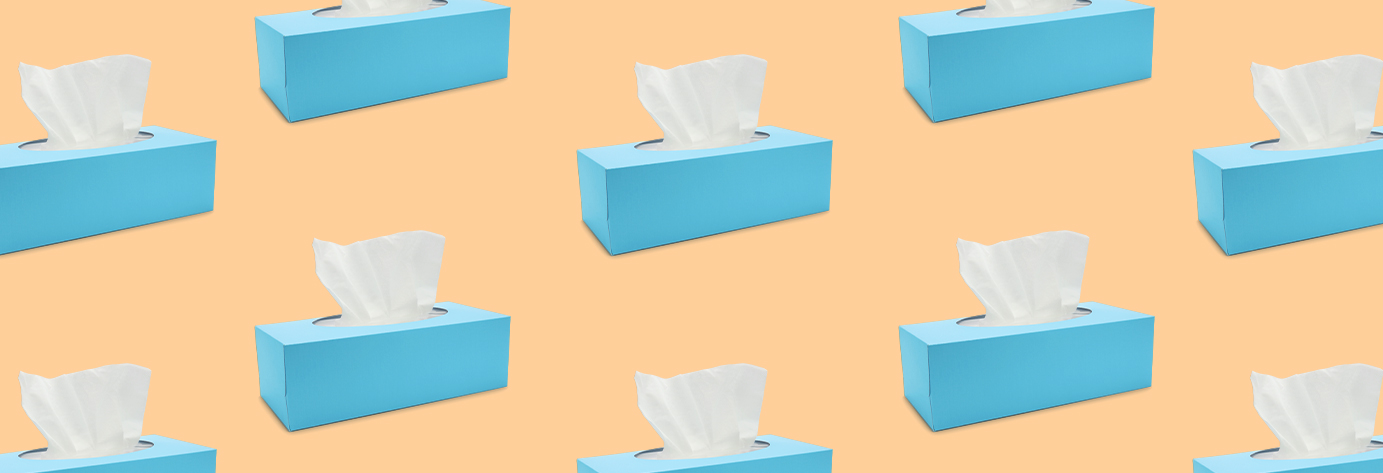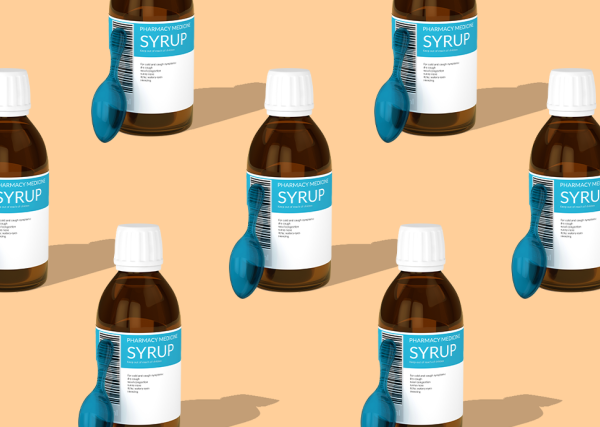
what your mucus tells you about your health.
and when to talk to an MDLIVE doctor.
When you’re sick, mucus can be embarrassing, irritating, frustrating, and just plain gross – especially when you’re suffering from a severe cold or flu – but it’s incredibly important for your body. And now that it’s cold and flu season, it’s even more important to pay attention. Whether it’s thick, thin, clear, or green, find out what your mucus is trying to tell you and when you should see an MDLIVE board-certified doctor.
What is mucus, anyway?
Why is my body producing so much mucus?
The average person produces more than a liter of mucus each day. When you’re feeling well, you probably don’t even notice that you’re constantly swallowing it (to the tune of about 38 ounces a day), but when you aren’t feeling well, all that mucus becomes a lot more noticeable.
Allergic reactions and respiratory infections like colds, the flu, and sinus infections can cause your body to produce even more mucus. Even something as simple as eating spicy food can trigger increased mucus production, and when you think about it, it makes sense. Mucus protects your body from outside threats, so when your body is experiencing something outside of the norm, like allergens or extra spice, your body puts up its defenses and amps up your mucus production.
Thin or thick mucus – does it matter?
Whether you’re dealing with a runny nose, postnasal drip, thick rubbery mucus from your nose, or coughing up clear mucus, the thickness of your snot can give doctors an insight about what’s ailing you.
For example, if your nose won’t stop running, it could be allergies or a cold. On the other hand, thick mucus can be caused by dehydration. Since mucus is mostly composed of water, if you aren’t adequately hydrated or live in a dry climate, you won’t secrete as much fluid as you would if you were well hydrated or live in a more humid place. Your mucus will also be thicker if you’re taking certain medications, like decongestants, or if you smoke. Just another good reason to kick that habit.
Can you tell if you have COVID-19 by mucus color?
No. According to the Centers for Disease Control and Prevention, while congestion and thick mucus can be common symptoms of COVID-19, the best way to find out is to get tested. Since COVID-19 can look like other illnesses, like cold and flu, you can’t tell if you have COVID-19 by the color of your mucus.
What does the color of your mucus mean?
When people think about mucus, the biggest concern is the color. We’ve all been brought up to believe that yellow mucus means you have an infection and need antibiotics, but that isn’t always true. You could also be suffering from a virus like the cold, which doesn’t require antibiotics.
Your mucus can come in a wide variety of colors, and they all mean something different. Take a closer look and see what your snot is trying to tell you.
Stop the spread.
If you aren’t feeling good and your mucus isn’t clear, the last thing you want to do is spread it to your family, friends, and coworkers. Each time you cough or sneeze, your mucus can travel at least six feet away from you.
To prevent the spread of germs:
When should I see an MDLIVE doctor?
If you’ve been sick for several days without getting better, schedule an appointment with an MDLIVE board-certified doctor. You can talk to a doctor from the comfort of home and avoid exposure to other sick people in a crowded urgent care center, walk-in clinic, or ER.
Posted date: February 12, 2020



